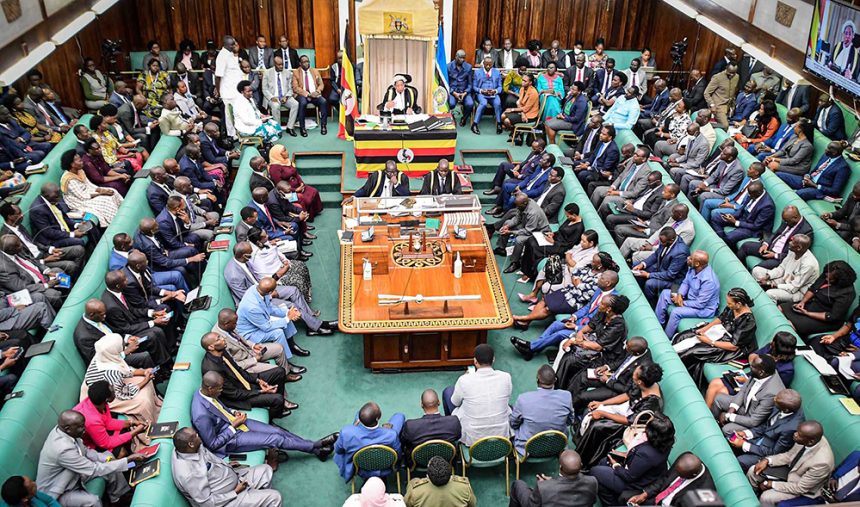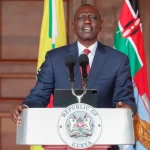Members of parliament have disagreed with the Government over the Valued Added Tax (Amendment) Bill 2024. The House was suspended following disagreements and chaos over the status of the Bill.
The majority and minority reports on the Bill noted that the Certificate of Financial Implication issued for the Bill was inadequate in as far as detailing the estimates of revenue for each of the next two financial years. Additionally, the certificate did not indicate the impact of the Bill on the economy. This is inconsistent with Section 76 (3) of the Public Finance Management Act.
Amos Kankunda (Rwampara County), chairperson of Parliament’s committee on finance, planning and economic development, presented the report of the committee on the Bill on Friday, May 3, 2024.
Kankunda said in the Domestic Revenue Mobilisation Strategy Annual Monitoring Plan for Financial year 2022/23 that majority of the tax law amendments are not informed by tax-related analytical briefs.

He said there are weak partnerships between the tax policy department in the finance ministry and the Uganda Revenue Authority. This undermines evidence-based tax development mechanisms.
“The frequent amendments of tax laws has caused challenges to the taxpayer. This is due to the absence of a comprehensive tax policy,” Kankunda said.

Ibrahim Ssemujju (FDC, Kira Municipality) and Nandala Mafabi (FDC, Budadiri West) presented minority reports on the Bill.
Ssemujju (Kira Municipality) said there is absence of tax policy, no research, no study of new tax proposals, non-compliance with the law.
He said every Bill that needs a certificate of financial implication does not meet the requirements as required in the PFMA. He said there was a lack of a comprehensive tax policy and that is why the government was bringing tax measures on a piecemeal basis.
He alluded to the unease expressed by traders over the Electronic Fiscal Receipting Solution saying additional taxes create resistance to overburdened tax payers.
Mafabi said the tax proposals were focusing on taxing incomes and not addressing increasing expenditures which create demand for tax extra revenues yearly.
He noted trying to change the tax schedule for hoes, fertilisers and seeds from zero rated items to exempt items from taxation might create confusion and lead to increase in their prices. Zero rated supplies: These are supplies charged VAT at a rate of 0%. Such supplies are listed in the third schedule to the VAT Act. They among others include all exports and supply of drugs and medicines manufactured in Uganda and supply of cereals where such cereals are grown and milled in Uganda among others.
Exempt supplies are supplies of goods and services which do not attract VAT. These are specified in the second schedule to the VAT Act. Examples of exempt supplies include; health insurance and life insurance services, petroleum fuels, social welfare services, educational services, financial services, passenger transportation services.
A person dealing only in exempt supplies is not expected to register for VAT while one dealing in zero rated supplies is expected to register in case they meet the registration requirements.
Henry Musasizi, state minister for finance, argued the Bill met all the requirements of the law.
Speaker Anita Among, who chaired the House, suspended it 30 minutes to allow selected MPs including the finance minister, shadow minister of finance, finance committee chairperson, Attorney General and party whips to harmonise on tax bill. On resumption, Among asked Musasizi to table an addendum to the certificate of financial implication on the bill and other tax bills in the next few days and adjourned the House to Monday 6 May 2024.








